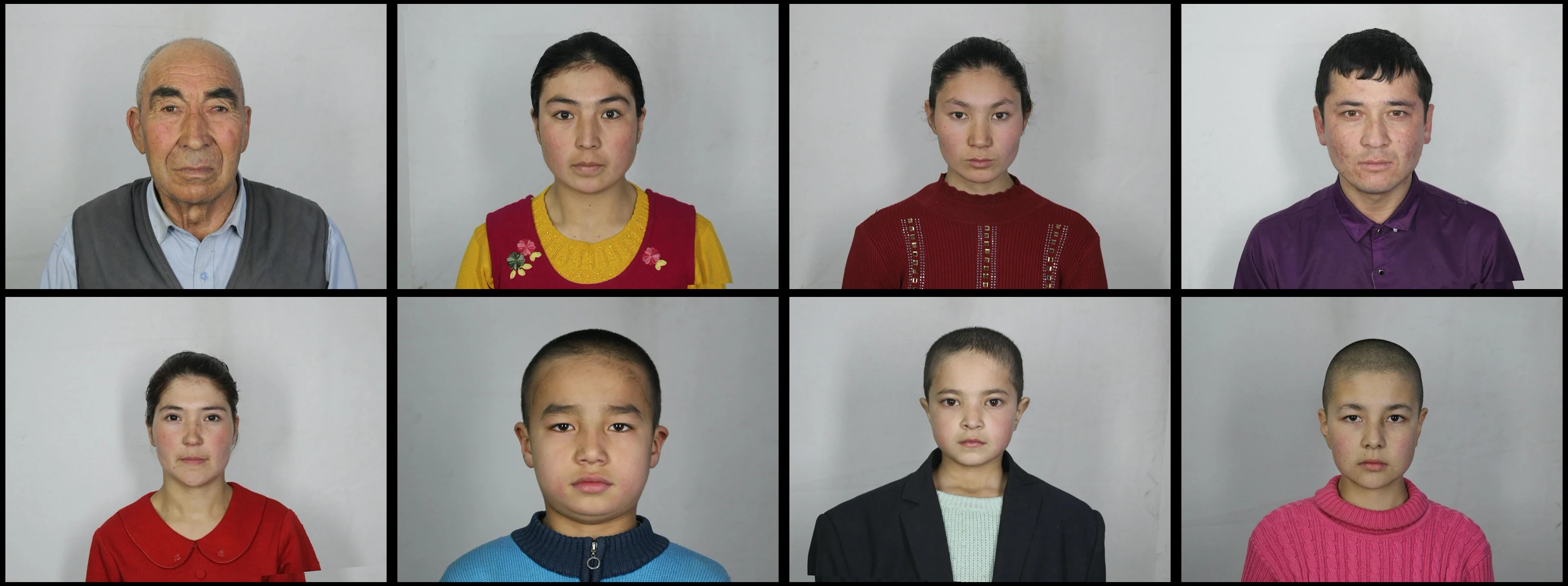The faces from China’s Uyghur detention camps
May 24, 2022Thousands of photographs from the heart of China’s highly secretive system of mass incarceration in Xinjiang, as well as a shoot-to-kill policy for those who try to escape, are among a huge cache of data hacked from police computer servers in the region.
The Xinjiang Police Files, as they’re being called, were passed to the BBC earlier this year. After a months-long effort to investigate and authenticate them, they can be shown to offer significant new insights into the internment of the region’s Uyghurs and other Turkic minorities.
…
The documents provide some of the strongest evidence to date for a policy targeting almost any expression of Uyghur identity, culture or Islamic faith - and of a chain of command running all the way up to the Chinese leader, Xi Jinping.
…
The hacked files contain more than 5,000 police photographs of Uyghurs taken between January and July 2018.
Using other accompanying data, at least 2,884 of them can be shown to have been detained.
And for those listed as being in a re-education camp, there are signs that they are not the willing “students” China has long-claimed them to be.
…
Some of the re-education camp photos show guards standing by, armed with batons.
…
Many have been detained just for ordinary, outward signs of their Islamic faith or for visiting countries with majority Muslim populations.
…
With the threat of physical force again visible in the background, this woman’s photo highlights the widespread use of “guilt by association”.
Documents describe her son as having “strong religious leanings” because he doesn’t drink alcohol or smoke. As a result, he was jailed for 10 years on terrorism charges.
But she appears on a list of “relatives of the detained” - among the thousands placed under suspicion because of the “crimes” of their families.
…
The youngest, Rahile Omer, was only 15 at the time of her detention.
The oldest, Anihan Hamit, was 73.
…
There are countless examples of people being punished retrospectively for “crimes” that took place years or even decades ago - with one man jailed for 10 years in 2017 for having “studied Islamic scripture with his grandmother” for a few days in 2010.
Many hundreds are shown to have been targeted for their mobile phone use - mostly for listening to “illegal lectures” or having encrypted apps installed.
Others are punished with up to a decade in prison for not using their devices enough, with well over a hundred instances of “phone has run out of credit” being listed as a sign that the user is trying to evade the constant digital surveillance.
The spreadsheets show how lives are sifted in search of the slightest of pretexts, which are turned into the broadest of charges - “picking quarrels” or “disturbing the social order” - and then punished as serious acts of terrorism; seven years, 10 years, 25 years, the columns of sentences stretch on and on.
If the terrorism label is ever justly applied, it’s impossible to discern among a sea of data pointing to the internment of a people not for what they’ve done, but for who they are.
Tursun Kadir’s spreadsheet entry lists some preaching and studying of Islamic scripture dating back to the 1980s and then, in more recent years, the offence of “growing a beard under the influence of religious extremism”.
For this, the 58 year old was jailed for 16 years and 11 months. Photographs in the cache show him both before and after the Chinese state determined his expression of Uyghur identity to be illegal.
Even for those not in a camp or prison, the Xinjiang Police Files reveal the gruelling impact of such high levels of scrutiny and surveillance.
The images show that Uyghurs still living in their homes were summoned in large numbers to be photographed, with the associated image timestamps showing whole communities - from the very elderly to families with young children - called into police stations at all hours, including in the middle of the night.
…
Five months after their police photos were taken in 2018, husband and wife Tursun Memetimin and Ashigul Turghun were sent to a detention centre after being accused of having “listened to a recording of an illegal lecture” on someone else’s mobile phone six years earlier.
Two of their three daughters’ photographs are also in the hacked files - Ruzigul Turghun, who was 10 at the time of their parents’ disappearance - and Ayshem Turghun, who was six.





